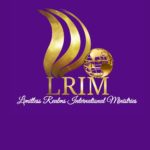 Three simple truths define a believer’s walk with God: faith, trust, and obedience. One’s faith in Him—His goodness, majesty, and sovereignty—enables the trust. His nature—the same yesterday, today, and forever—makes Him trustworthy. Faith and trust, however, are incomplete without obedience. Because He is Who He says He is, because He is unchanging, one’s obedience is well-placed and well-portioned in Him.
Three simple truths define a believer’s walk with God: faith, trust, and obedience. One’s faith in Him—His goodness, majesty, and sovereignty—enables the trust. His nature—the same yesterday, today, and forever—makes Him trustworthy. Faith and trust, however, are incomplete without obedience. Because He is Who He says He is, because He is unchanging, one’s obedience is well-placed and well-portioned in Him.
1st Truth: Faith
Hebrews 11:1 is perhaps the hallmark faith Scripture: “Now faith is being sure of what we hope for and certain of what we do not see.” (NIV) The word faith in this passage is the Greek word pistis—a conviction that God exists and is the creator and ruler of all things, the provider and bestower of eternal salvation through Christ; a strong and welcome conviction or belief that Jesus is the Messiah, through whom we obtain eternal salvation in the Kingdom of God. Strong’s Concordance also includes the definition of fidelity and faithfulness—the character of one who can be relied upon. The root of pistis is peithō, a primary verb meaning to persuade, to be persuaded, to believe, to listen to, to obey, to yield to, to comply with, to trust, to be confident in.
These definitions, then, confirm that one’s faith in God has substance. It is not some ethereal, wispy wish, but a well-rooted, weighty belief in His Divine three-person Godhead.
2nd Truth: Trust
Faith begets trust. He is consistently credible, dependable, and honorable. Our trust, then, is not a tentative tiptoeing but an absolute knowing, secured by the weight of attached promises.
“Trust in the Lord and do good; dwell in the land and enjoy safe pasture. Take delight in the Lord, and He will give you the desires of your heart. Commit your way to the Lord; trust in Him, and He will do this: He will make your righteous reward shine like the dawn, your vindication like the noonday sun.” (Psalm 37:3-6)
“Trust in the Lord with all your heart and lean not on your own understanding; in all your ways submit to Him, and He will make your paths straight.” (Proverbs 3:5)
That word trust in those two Scriptures (and many others) is the primitive Hebrew root batach, which means to be boldly and securely confident, to feel safe and careless. We can wholeheartedly trust in Him, because He is unequivocally trustworthy.
3rd Truth: Obedience
Faith and trust require action, which produces obedience. “By faith, Abraham, when called to go to a place he would later receive as his inheritance, obeyed and went, even though he did not know where he was going.” (Hebrews 11:8)
Obey is the Greek hypakouō meaning to listen, submit, and harken to a command, and it stems from the primitive roots hypo (under) and akouō (to hear, to attend to what has been said). Abraham perfected his faith and trust in God with action. He heard what God said. And, then he activated what he heard … even though he didn’t know where he was going.
Simon Peter’s obedience was similar. When instructed by Jesus to let down his nets and fish again (after fishing all night for naught), he replied, “… ‘Master, we’ve worked hard all night and haven’t caught anything. But, because You say so, I will let down the nets.’” (Luke 5:5)
Because You say so. No ifs, ands, or buts. No questions asked. Faith. Trust. Obedience.
A Three-Fold Cord
Faith, trust, and obedience comprise a three-fold cord of Kingdom relationship with the three-person God: Abba Father, Yeshua Savior, Ruach Ha-Kodesh Holy Spirit. The braiding makes us one, and it is not passive and stagnant but active and perpetual. We believe again. We trust again. We obey again. Again and again. Over and over. And, as promised in Psalm 25:3, those who qavah (are bound together) with Him will never be put to shame.
 Written by Kathryn Wells
Written by Kathryn Wells
Guest Author


